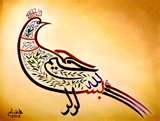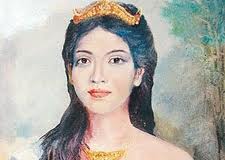A Dhimmi The word "dhimmitude" comes from dhimmi, an Arabic word meaning "protected".
Dhimmitude encompasses the relationship of Muslims and non-Muslims at the theological, social, political and economical levels. It also incorporates the relationship between the numerous ethno-religious dhimmi groups and the type of mentality that they have developed out of their particular historical condition which lasted for centuries, even in some Muslim countries, till today.
Dhimmitude is an entire integrated system, based on Islamic theology. It cannot be judged from the circumstantial position of any one community, at a given time and in a given place. Dhimmitude must be appraised according to its laws and customs, irrespectively of circumstances and political contingencies.
 A dhimmi (Arabic: ذمي [ˈðɪmːiː]), (collectively أهل الذمة ahl al-dhimmah, "the people of the dhimma or people of the contract") is a non-Muslim subject of a state governed in accordance with sharia law. The dhimma is a theoretical contract based on a widely held Islamic doctrine granting special status to adherents of Judaism, Christianity, and certain other non-Muslim religions ("People of the Book"). Dhimma provides rights of residence in return for taxes.[1] Dhimmi have fewer legal and social rights than Muslims, but more rights than other non-Muslims.[2] They are excused from specifically Muslim duties, and otherwise equal under the laws of property, contract and obligation.[3]
A dhimmi (Arabic: ذمي [ˈðɪmːiː]), (collectively أهل الذمة ahl al-dhimmah, "the people of the dhimma or people of the contract") is a non-Muslim subject of a state governed in accordance with sharia law. The dhimma is a theoretical contract based on a widely held Islamic doctrine granting special status to adherents of Judaism, Christianity, and certain other non-Muslim religions ("People of the Book"). Dhimma provides rights of residence in return for taxes.[1] Dhimmi have fewer legal and social rights than Muslims, but more rights than other non-Muslims.[2] They are excused from specifically Muslim duties, and otherwise equal under the laws of property, contract and obligation.[3]Under sharia law, dhimmi status was originally afforded to Jews, Christians, and Sabians. The protected religions later came to include Zoroastrians, Mandaeans, Hindus and Buddhists.[4][5] Eventually, the largest school of Islamic legal thought applied this term to all non-Muslims living in Islamic lands outside the sacred area surrounding Mecca, Saudi Arabia.[6] This status therefore applied to millions of people living from Spain and Morocco on the Atlantic Ocean to Indonesia in the Pacific, and from the 7th century CE until modern times.[7]
As an example of the distinctions between Muslims, dhimmis, and others, sharia law in present-day Saudi Arabia prescribes blood money to be paid for the death of a person caused by another. The amount payable for a Christian or Jew is half that for a male Muslim; but all others are valued at 1/16th.[8] As another example of these distinctions, sharia law permits the consumption of pork and alcohol by non-Muslims living in Islamic countries, although they may not be openly displayed.[9] These same commodities are expressly forbidden to Muslims.[10]
Marriage between Muslims and dhimmis
Muslim men may generally marry dhimmi women who are considered "People of the Book," however Islamic jurists reject the possibility any non-Muslim man might marry a Muslim woman.[150] Islamic law regarding mixed marriages developed primarily out of three Quranic verses – [Qur'an 2:221], [Qur'an 60:10], and [Qur'an 5:5].Traditionally, the prohibition of marriage between Muslim women and dhimmi men was enforced with the utmost rigor.[13]
All schools of Islamic jurisprudence, with the exception of the Hanafi, treated dhimmi men who married Muslim women as adulterers, for whom the punishment was death by stoning.[151] In cases where a non-Muslim wife converts to Islam, while her non-Muslim husband does not, their marriage is annulled.[152]
According to some early Muslim scholars, marriage between a dhimmi and a Muslim woman would lead to an incompatibility between the superiority of the woman, by virtue of her being a Muslim, and her unavoidable subservience to a non-Muslim husband. Some traditionalists compared marriage to enslavement; as dhimmis were prohibited from having Muslim slaves, so dhimmi men were not allowed to have Muslim wives. Conversely, Muslim men were allowed to marry dhimmi women because the enslavement of non-Muslims by Muslims was allowed.[153] Azizah Y. al-Hibri states that the relevant hadith regarding marriage and slavery draw an analogy between the status of women and slaves in Muhammad's society in order to beseech the male audience to treat them kindly: "Be good to women; for they are powerless captives (awan) in your households. You took them in God’s trust, and legitimated your sexual relations with the Word of God, so come to your senses people, and hear my words..."[154]
In the Qur'an
There are many statements in the Qur'an that promote tolerance towards People of The Book. For example:- And do not dispute with the followers of the Book except by what is best, except those of them who act unjustly, and say: We believe in that which has been revealed to us and revealed to you, and our God and your God is One, and to Him do we submit. [Qur'an 29:46]
- Not all of them are alike; a party of the people of the Scripture stand for the right, they recite the Verses of God during the hours of the night, prostrating themselves in prayer. They believe in God and the Last Day; they enjoin Al-Ma'rûf and forbid Al-Munkar ; and they hasten in (all) good works; and they are among the righteous. And whatever good they do, nothing will be rejected of them; for God knows well those who are Al-Muttaqûn .(3:113-115)
- And there are, certainly, among the people of the Scripture (Jews and Christians), those who believe in God and in that which has been revealed to you, and in that which has been revealed to them, humbling themselves before God. They do not sell the Verses of God for a little price, for them is a reward with their Lord. Surely, God is Swift in account. '(3:199)'
- Verily! Those who believe and those who are Jews and Christians, and Sabians, whoever believes in God and the Last Day and do righteous good deeds shall have their reward with their Lord, on them shall be no fear, nor shall they grieve . [Qur'an 2:62]
- Say (O Muhammad ): "O people of the Scripture : Come to a word that is just between us and you, that we worship none but God, and that we associate no partners with Him, and that none of us shall take others as lords besides God. [Qur'an 3:64]



































No comments:
Post a Comment
Note: Only a member of this blog may post a comment.